Hormonal Imbalance in ‘40s
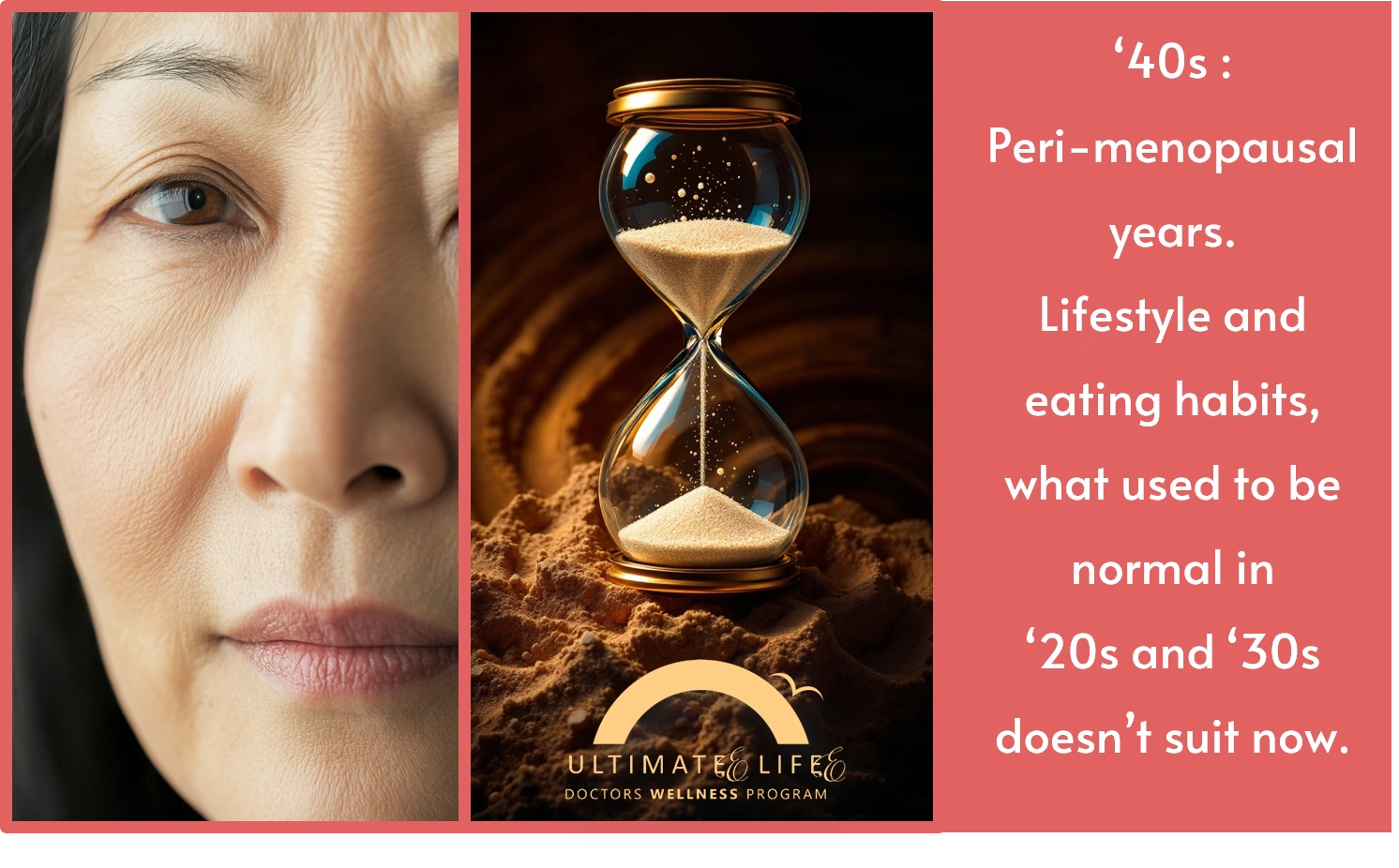
Hormonal Imbalance in ‘40s
In ‘40s many women begin to notice that their lives are changing. She may be single, wife, mother, and a daughter and her plate is the fullest. Her kids may be at the age where she worries the most. Financial troubles and stress may set in. Her parents are aging and demand her time.
Her body is beginning to reject what was once normal in ‘20s and ‘30s primarily due to hormonal fluctuations. They may begin to experience unintentional weight gain despite no dramatic change in eating habits or exercise. Clothes don’t quite fit the same even though the scale reads the same. They may feel testy and short, tired and annoyed. They find it difficult to get a good night’s sleep. Their periods may become irregular and different. The increase in worry and thought provokes anxiety.
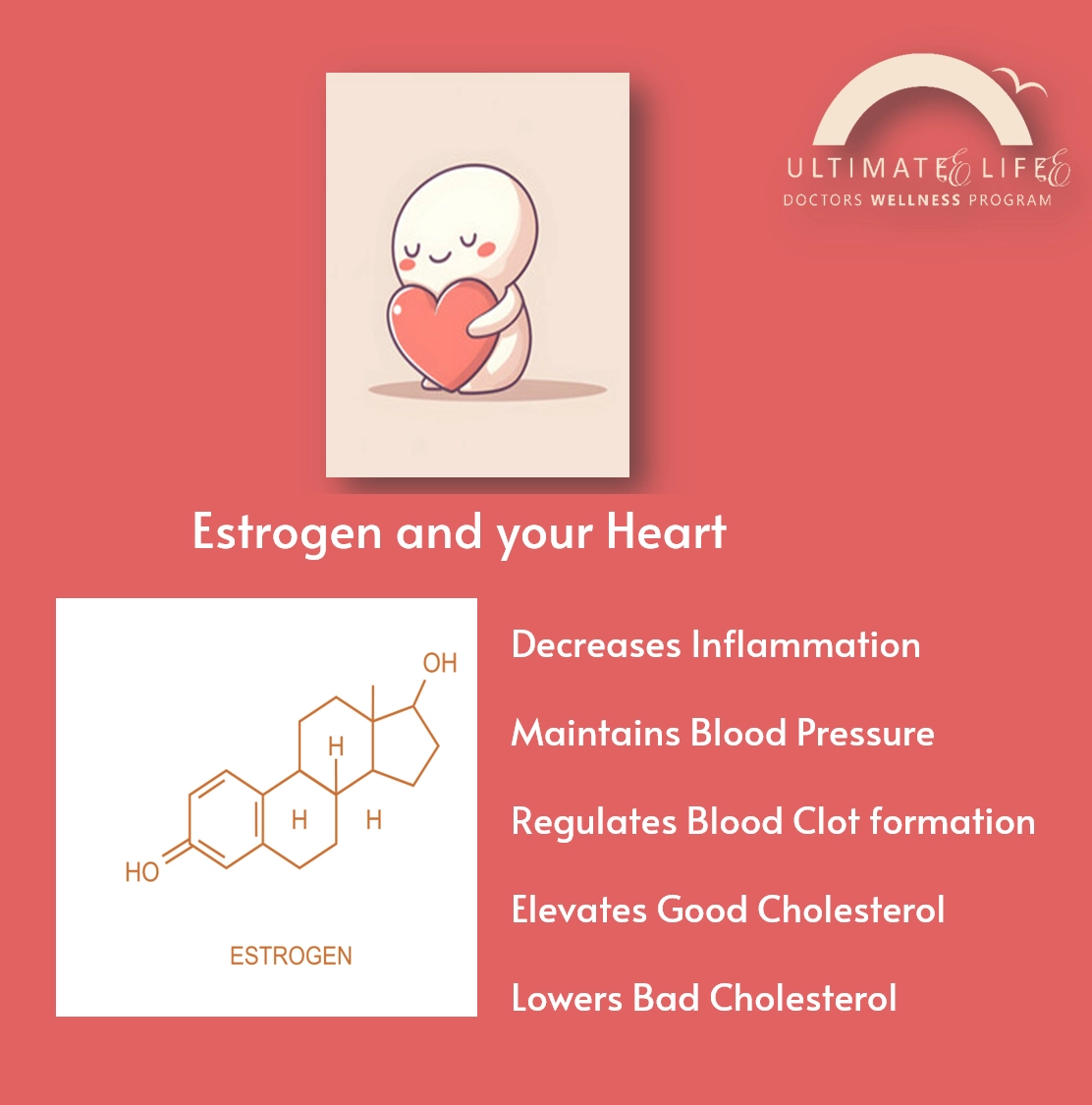
Embracing 40 and good health
Many times women wonder why they have gained weight when they have not changed their eating habits. Because of the hormonal fluctuations it doesn’t allow women to eat the same way as they did in their ‘20s and ‘30s. The reality is this that women have to start eating differently in their ‘40s.
Hormonal imbalance is common in women in their ‘40s due to perimenopause, which is a period of fluctuating hormone levels that usually begins in the mid ‘40s. During perimenopause, estrogen levels start declining, often causing unpredictable physical and emotional symptoms.
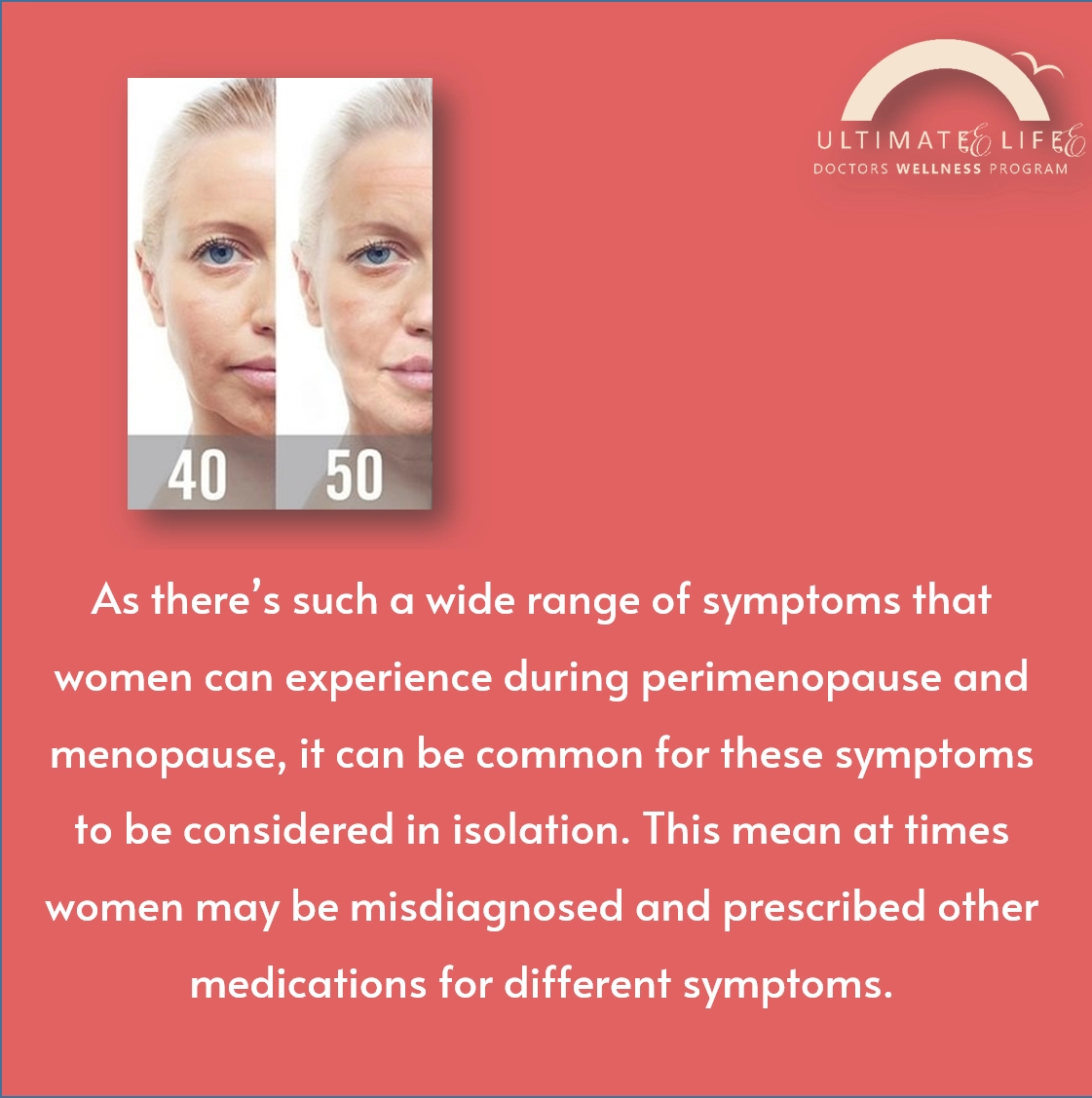
Common experiences faced in ‘40s are -
# What’s wrong with my body? In ‘40s, Ovaries will slowly start to release less estrogen often leading to unpredictable physical and emotional symptoms. Hot flushes and night sweats are common, as well as heart palpitations, loss of memory, insomnia and drastic mood swings.
# Decreasing bone density. Lower oestrogen also increase risk of osteoporosis – bone density start decreasing and bones become prone to fractures.
# Increased risk of Heart Disease. Estrogen exerts its protective effect on heart and vascular system with anti-inflammatory effects. Estrogen is important in maintaining healthy cholesterol levels, LDL cholesterol and triglyceride levels and in maintaining healthy blood vessels.
With the onset of menopause, lipid or fat parameters usually start deteriorating, the elasticity of blood vessels decreases and the blood supply to the organs may reduce – effecting organ functions. There’s increases in cholesterol levels and in a few years, the worsening trend of LDL cholesterol, triglyceride and blood sugar can lead to severe cardiac health issues.
# Increase in inflammation ? Estrogen has powerful anti-inflammatory effect. The declining estrogen in perimenopause and menopause can be a trigger for chronic low-grade increase in inflammation. If a women already has some inflammation in body, it can greatly increase with passing age.
Over time, this systemic inflammation can damage our arteries, organs, and joints, increasing our risk for chronic disease like heart disease, IBS, arthritis, dementia, and other conditions including cancer.
Women spend around half of their life as postmenopausal women. It is essential that women understand how the low ovarian hormonal state contributes to inflammation and chronic disease.
# Hot flashes and night sweats Hot flashes, also known as vasomotor symptoms, are quick bursts of hot skin and often drenching sweat that last anywhere from 30 seconds to about five minutes. Your face and neck may turn red, your heart rate may increase and you will most likely break out in a sweat. Night sweats are the same thing, only you’re jolted awake by the heat and sweat sensation consuming your body.
These sudden bursts, especially at night, can cause fatigue, irritability and even forgetfulness. They are thought to be related to changes in the brain’s thermoregulatory centre, which controls heat production, and is influenced by fluctuating hormones during perimenopause.
Women have hot flashes for an average of about three and a half years to 9 - 10 years from first sign of menopause.
# Sleep difficulties are more likely to occur during menopause. For some, sleep problems are severe, leading to chronic fatigue, affecting quality of life, and can have long-term consequences for heart health, mental and physical health.
# Most women experience hair thinning as they move in ‘40s because of a drop in estrogen and progesterone levels. It can cause hair to grow more slowly and shed more. This is called diffuse thinning, which means hair thins and falls out evenly across the scalp.
# Water retention gets daily problem. With hormonal fluctuations body holds on the water. It also affect the thirst as well, which may result in a significant decrease in fluid intake, which of course, intensifies water retention further.
# Bladder can sometimes elude your control. Estrogen loss weakens the muscles that support the bladder so, holding strength reduces.
# Often in ‘40s, Menstrual period can become unpredictable. You can see varying menstrual patterns; periods can be either closer together or farther apart. Some cycles will have an extremely heavy flow, and there may be months where your period doesn’t occur at all.
# Memory loss: your brain goes AWOL: There’s got to be a good reason why you’re standing in front of the fridge, right? Some loss of memory and brain function between perimenopause and post-menopause is commonly observed.
# Urinary problems will increase as you get older. Vaginal dryness is a common symptom during perimenopause and menopause. Thinning vaginal walls and decreased lubrication because of lower estrogen levels causes dryness and increase chances of getting frequent urinary tract infections (UTIs).
# Weight management is more challenging after menopause. Metabolic changes in your body and shifts in its composition can increase abdominal fat, increasing risk of type 2 diabetes. The risk of central obesity in menopausal women is five times higher than before. Central obesity, increased lipids, glucose intolerance, and hypertension are the most common risk factors for heart disease in menopausal women. The incidence of metabolic syndrome in postmenopausal women is 2–3 times higher than before menopause.
# Increased risk of female cancers such as breast cancer and ovarian cancer It’s a harsh reality of women’s health that the risk of developing hormone-sensitive breast cancer increase significantly in ‘40s. The three leading risk factors are overweight (or obesity), regular alcohol consumption, and a sedentary lifestyle. Family history of cancer, weight gain of 20 kg in adulthood doubles the risk of breast cancer. Regular alcohol consumption and a sedentary lifestyle in both the pre- and postmenopausal age also increase the risk of developing breast cancer
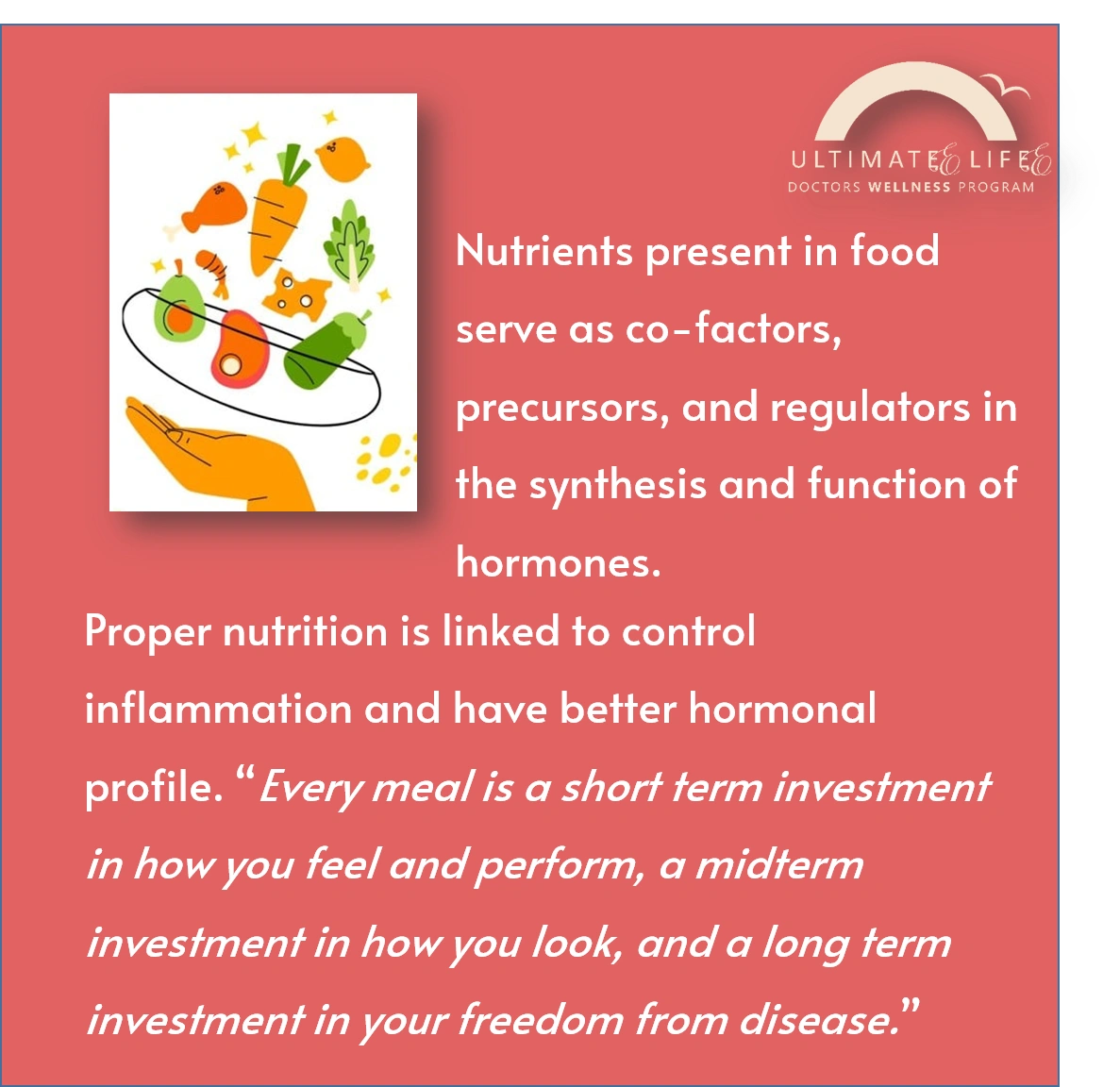
Are Hormonal Replacement Therapy good?
For some women their body’s negative reaction to components of HRT is so severe that they are unable to take it, while for some the benefits of HRT outweigh the impact of the side effects. Frequently experienced side effects are:
- Side effects related to the hormone Oestrogen – breast tenderness, leg cramps, skin irritation, bloating, indigestion, nausea, headaches.
- Side effects related to the hormone Progesterone - premenstrual syndrome-like symptoms, fluid retention, breast tenderness, backache, depression, mood swings, pelvic pain.
Sometimes it is necessary to change the type of HRT to minimize side effects. Some women will complain that they put on weight as a result of taking HRT.
Potential harms of systemic MHT (Menopausal Hormone Therapy) include:
- increased risk of vaginal bleeding
- increased risk of urinary incontinence
- increased risk of dementia
- increased risk of stroke, blood clots, and heart attack
- increased risk of endometrial cancer in people with an intact uterus with estrogen alone HRT
- increased risk of breast cancer with prior use of OCPs for at least a decade after use is discontinued
- increased breast density making mammography less effective and also increasing breast cancer risk
- increased risk of death from lung cancer
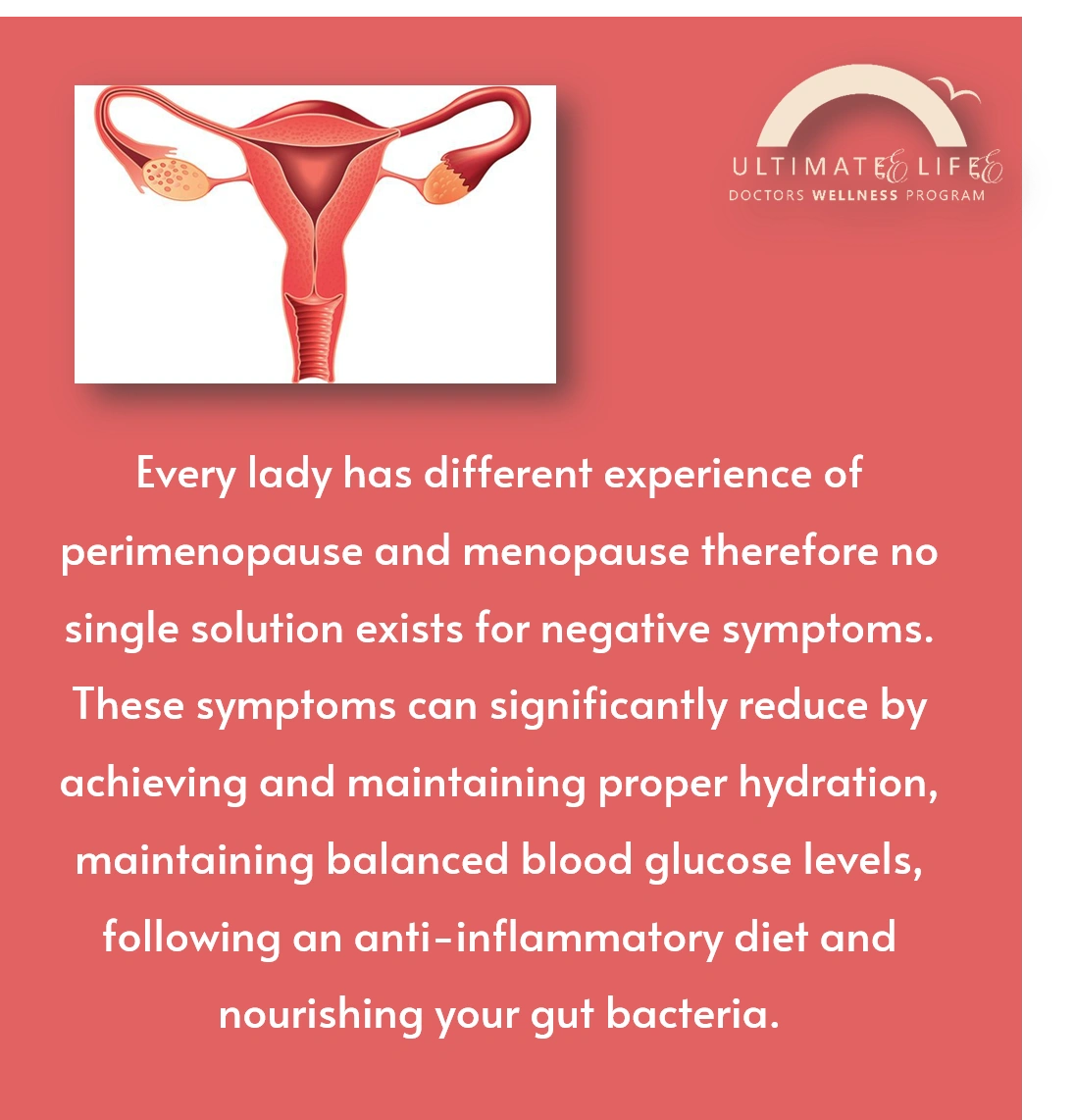
How to Manage the Progression in ‘40s Naturally?
Every lady has different experience of perimenopause and menopause therefore no single solution exists for negative symptoms. But these symptoms can significantly reduce and their negative effects can be minimized by achieving and maintaining a healthy nutritional status.
It’s well documented that diets having calorie less than 1200 kcal/day are associated with a higher risk of micronutrient deficiency and in the case of a very low-calorie diet (<800 kcal/day) apart from nutrient deficiency, gallstones are common.
During perimenopause and menopause, the risk and occurrence of several chronic diseases increases due to decrease in estrogen levels; therefore nutritional intervention is an essential element for prevention of chronic diseases.
Complex, personalized lifestyle therapy which can address the nutritional needs of your body is very effective. Nutrients present in food serve as cofactors, precursors, and regulators in the synthesis and function of hormones. Your normal food itself is good in managing this. There’s no need to go for expensive super foods. Proper nutrition is linked to better hormonal profile, not only the quantity of nutrients but also their quality is important.
We’re Here to Help You Find Answers and Feel Better
We know it can be exasperating to have hormone issues in ‘40s. And the conventional treatment with hormonal pills leads to multiple health issues.
We are Ayurveda Doctors, and we're here to restore your health with natural remedies and solutions. Ayurveda herbs and diet support sustainable weight and hormonal management by addressing the imbalances, promoting balanced nutrition, metabolism, reducing cravings, and fostering a healthy relationship with food.
Food and herbs acts as precursors to crucial molecules which are involved in bodily reactions. Nutrients maintain and manipulate physiological processes and biochemical pathways, including those governed by hormones. Maintaining hormonal balance is crucial for sustaining reproduction and fertility.
Our approach involves a thorough assessment of your health, your lifestyle and dietary choices and figuring out the imbalances. We will recommend diets and herbs based on your health condition to resolve these imbalances to help you restore your hormonal health.
Don’t hesitate to reach out to talk to our team about your hormonal imbalance concerns.